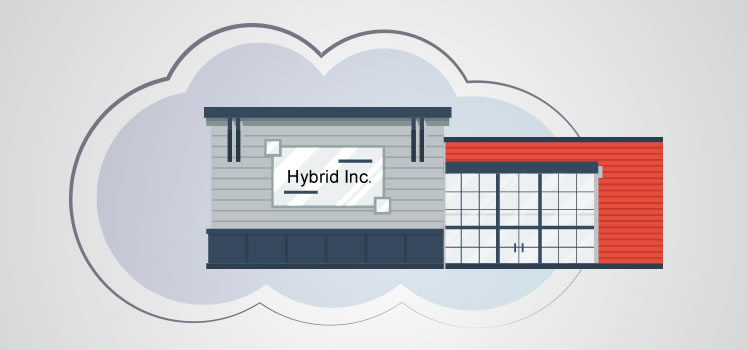Enterprise DNS – Is it really that important?
Quick, name the most important server in your network –
- Web server?
- Active Directory server?
- Mail server?
Those are all important no doubt, but your DNS servers are probably the most critical to your network operations. Imagine you were traveling within a foreign country you had never visited before and the area was totally void of road signs or traffic directionals. Imagine you had no map or GPS navigational system to guide you. Most likely the trip would be a disaster as you would end up seeing very little of the country at all. In a similar fashion, DNS is the roadmap of your enterprise. Without it, productivity would come to a virtual halt as users and computer devices would be unable to locate critical infrastructure and resources.
The Role of DNS in Your On-Premise LAN
DNS is the roadmap of your enterprise. We often think of DNS as an Internet service, but even within the confines of a traditional LAN, its services are essential to network operations. Without DNS, users would not be able to locate servers that host the data files, printers and other resources they need to perform their jobs.
- Network authentication would not be possible without DNS in many cases. When a user logs on to the network, their device must query the DNS in order to locate an authentication server.
- Access to the on-premise Exchange server would not be possible without local DNS.
- For security reasons, many IT teams restrict external DNS queries to the enterprise DNS servers only in order to prevent rogue DNS servers to infect your network through downloaded malware.
DNS Advertises Your Internal Resources to the World
Your organization is not an island into itself. It was created to serve its customers and in many cases it cohesively works with designated partners. Once again, it is DNS that provides this level of interoperability.
- Outside users and customers are dependent on your public DNS servers that serves as the authorities that presents your enterprise host records and advertises your essential services such as web, mail, ftp and remote desktop.
- Many organizations allow relegated access to other organizations through the implementation of federated services, but without DNS, your federated infrastructure would not be able to function.
DNS is the lifeline for Hybrid IT
As important as DNS has been for the traditional LAN for over two decades, the critical sustenance of DNS is heightened further with today’s hybrid IT models. Today’s enterprise is comprised of servers and digital services that encompass the globe. In addition, the users within these organizations are scattered throughout the world, as are the customers within the global markets that companies service today. Hybrid networks are interwoven fabrics of public and private clouds and DNS is the invisible force that provides the underlying support for all of it. As important as DNS was to your on-premise network a decade ago, consider the magnitude of its significance in the global conglomerations of enterprises today.
- Whether you utilize SaaS applications or host them within an IaaS cloud, the DNS system points users to their designated applications
- Hybrid IT provides IT teams with the ability to deploy and decommission digital services within minutes in order to react to peak usage demands, unforeseen opportunities or sudden outages and disasters. The technology that allows this is a combination of virtualization, software defined networking and cloud computing. As powerful as the culmination of these technologies are however, it would all be all for naught without a dependable and fully automated DNS infrastructure.
What DNS Features You Must Have in a Hybrid Network
One of the attractive facets of hybrid IT is the simplicity of it for both users and IT personnel alike. Beneath this simplicity is a highly complicated framework that boasts far more complexity than the legacy on premise LAN of yesteryear. The ability to effortlessly navigate through this maze of intricacy requires an enhanced DNS system designed to handle hybrid IT. Some of the required features of DNS systems today include the following:
- Automated availability and failover. If your DNS services are not available, then neither are your hybrid resources. For many organizations, their DNS services must span the globe, which greatly complicates DNS management. An array of Anycast-enabled servers is imperative to ensure availability and provide optimal performance.
- DNS servers today must operate in fully automated mode as IT personnel and even users themselves can deploy new servers and services on demand. These automated cloud mechanized systems can also decommission resources as well. All of this means that DNS records must be automatically created and updated within seconds.
- Today’s DNS servers must do more than simply advertise host records. Users expect an optimized user experience, which means that GEO DNS Routing is necessary in order to direct users to the closest server to ensure the fastest browsing experience.
The fact is that today’s networks can no longer dependably function with legacy DNS. Instead, your enterprise needs a DNS built for the expansiveness and complexity of the hybrid networks of today.
 What is an Application Delivery Network?
What is an Application Delivery Network?  Global Server Load Balancing (GSLB)
Global Server Load Balancing (GSLB)  Measuring Failure
Measuring Failure 


